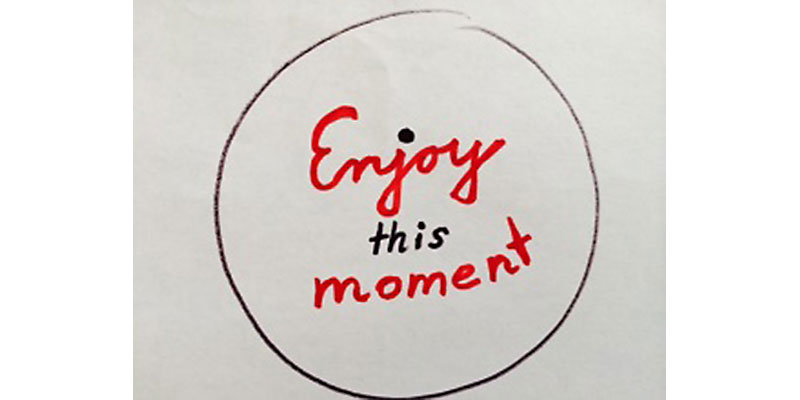
We also forecast that we will experience nothing else but our unhappiness. Somehow, we have difficulties imagining that ordinary events will continue, events that most certainly will demand our attention. The Earth is not likely to stop spinning still because we are in pain, for example.
I think this is especially true for teenagers. Once, when I broke up with a boy, I expected everybody else in the world to break apart with me. How could anybody just carry on? My mother’s remedy was, “Do the dishes please. This too shall pass.” And so I did and things did pass. We tend to exaggerate when it comes to predicting feelings, especially when we think they will be negative. Our thinking about the future can therefore become a huge obstacle to our happiness.
But that’s not all. Our otherwise impressive cognitive abilities also stand in the way when we analyze our happiness, instead of simply experiencing it. When we go into our head, we automatically detach from the heart—that is, from the limbic system where feelings are generated. Eventually both the good and the bad lose their power—and we can no longer become touched. Thinking does distance us from our feelings, which we might welcome when it comes to pain and suffering, but most certainly should not when it comes to happiness.
And yet we often think the good to death. Why is that? Most know intuitively: we clutch to all kinds of experiences and have difficulties with letting them go. As soon as we are found by happiness, we cannot get enough of it, hoping to reproduce it at will. (Given our success with negative feelings—understanding a painful past helps bring clarity— this seems like the clever thing to do.)
How can we remove the obstacles from the way of happiness? Just becoming aware of the impact bias and our tendency to overanalyze is very helpful. Awareness interrupts false predictions of the future and gives us pause, inviting us to come from gratitude instead of greed. Moreover, we can learn to direct our attention to the moment with the following practices:
- Build Confidence in You
When we worry about becoming emotionally overwhelmed, we can shy away from what could have been wonderful opportunities to invite happiness into our lives. Remember how you coped with an emotionally taxing situation in the past: Most of the time, we rise to the occasion and surprise ourselves with our inner strength. Necessity is, after all, the mother of invention. Write down the personal characteristics that emerged when you went through a hard time. It is good to know the powers of our hidden inner hero or heroine.
- Build Confidence in the World
We underestimate not only ourselves, but frequently the world. We imagine that life and suffering are static, immovable facts. Here it can be very helpful to formulate a personal mantra we can repeat to ourselves—for example: “No matter what, my heart keeps beating. The world keeps turning around. I trust the pulse of life.” People who worry about their life ending when they encounter personal challenges need to wake up to the fact that nothing ever stays the same.
- Still the Mind
When we stop seeing happiness as an accumulation of happy feelings and start seeing it as an open engagement with life—as I suggest in A Unified Theory of Happiness2—then we direct our attention to the present moment, instead of to the past or future. To open to the present moment, we need to get into the habit of taking a few minutes every day to still the mind. There is nothing esoteric about taking time out, doing nothing, and simply experiencing our breath. We can go inside and notice how all our experiences come in, stay for a while, and then leave again, just as the in-breath and out-breath. It is astonishing how we open to what is when we give ourselves to our actual engagement with life, to our happiness, and thus to the moment.
References
- Wilson, T. D., & Gilbert, D. T. (2013). The impact bias is alive and well.Journal of Personality and Social Psychology, 105(5), 740–748.
- Happiness can only be experienced when we do not resist the “flow” of life, however wild and difficult. See Part I for a definition of happiness and Part III for an in-depth discussion of indefinable Being in A Unified Theory of Happiness: An East-Meets-West Approach to Fully Loving Your Life, Andrea F. Polard (2012).
© 2014 Andrea F. Polard, PsyD. All Rights Reserved.